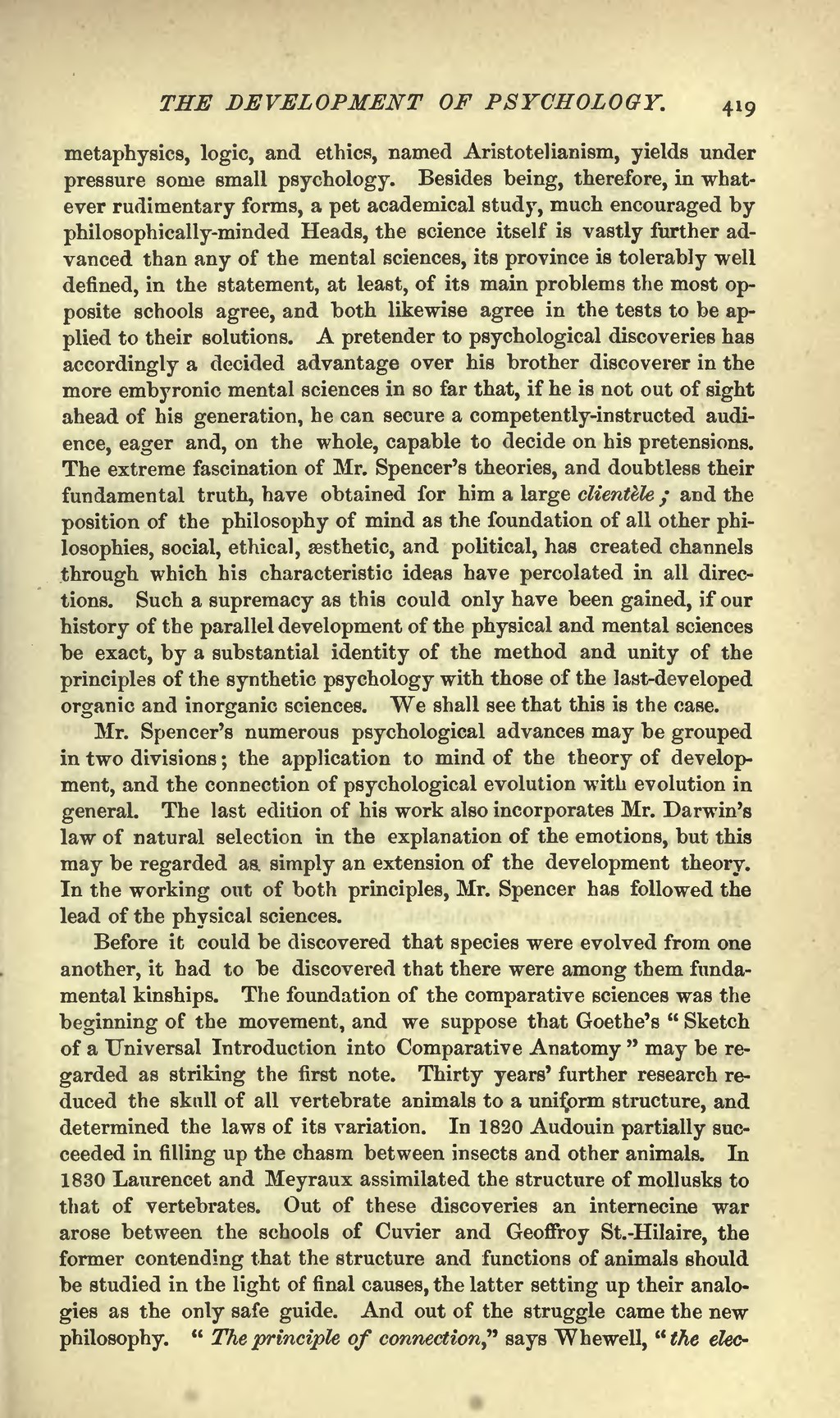metaphysics, logic, and ethics, named Aristotelianism, yields under pressure some small psychology. Besides being, therefore, in whatever rudimentary forms, a pet academical study, much encouraged by philosophically-minded Heads, the science itself is vastly further advanced than any of the mental sciences, its province is tolerably well defined, in the statement, at least, of its main problems the most opposite schools agree, and both likewise agree in the tests to be applied to their solutions. A pretender to psychological discoveries has accordingly a decided advantage over his brother discoverer in the more embyronic mental sciences in so far that, if he is not out of sight ahead of his generation, he can secure a competently-instructed audience, eager and, on the whole, capable to decide on his pretensions. The extreme fascination of Mr. Spencer's theories, and doubtless their fundamental truth, have obtained for him a large clientèle; and the position of the philosophy of mind as the foundation of all other philosophies, social, ethical, æsthetic, and political, has created channels through which his characteristic ideas have percolated in all directions. Such a supremacy as this could only have been gained, if our history of the parallel development of the physical and mental sciences be exact, by a substantial identity of the method and unity of the principles of the synthetic psychology with those of the last-developed organic and inorganic sciences. We shall see that this is the case.
Mr. Spencer's numerous psychological advances may be grouped in two divisions; the application to mind of the theory of development, and the connection of psychological evolution with evolution in general. The last edition of his work also incorporates Mr. Darwin's law of natural selection in the explanation of the emotions, but this may be regarded as simply an extension of the development theory. In the working out of both principles, Mr. Spencer has followed the lead of the physical sciences.
Before it could be discovered that species were evolved from one another, it had to be discovered that there were among them fundamental kinships. The foundation of the comparative sciences was the beginning of the movement, and we suppose that Goethe's "Sketch of a Universal Introduction into Comparative Anatomy" may be regarded as striking the first note. Thirty years' further research reduced the skull of all vertebrate animals to a uniform structure, and determined the laws of its variation. In 1820 Audouin partially succeeded in filling up the chasm between insects and other animals. In 1830 Laurencet and Meyraux assimilated the structure of mollusks to that of vertebrates. Out of these discoveries an internecine war arose between the schools of Cuvier and Geoffroy St.-Hilaire, the former contending that the structure and functions of animals should be studied in the light of final causes, the latter setting up their analogies as the only safe guide. And out of the struggle came the new philosophy. "The principle of connections," says Whewell, "the elec-

